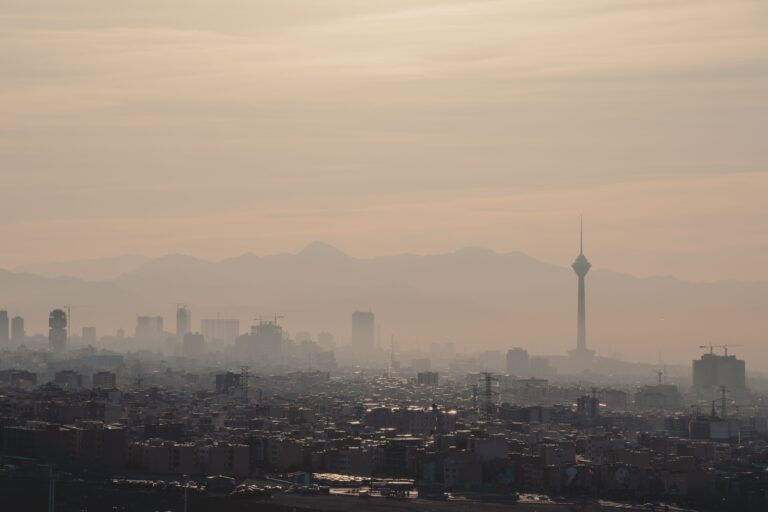What is a heat wave? Are you aware of the air pollution it can cause? A heatwave is an extended period of dangerously hot weather, which results in an increased risk of heat-related illnesses and death. The prolonged high temperatures that come along with a heatwave have the potential to drastically affect air quality as well.
In this blog article, we will discuss how heat waves cause air pollution and what can be done to improve indoor air quality during a heat wave.
Table of Contents
What are heat waves
A heat wave is defined as two or more consecutive days in which the daily high temperature exceeds the average maximum temperature for that time of year. These are abnormal periods of extreme heat that can cause serious health issues, such as dehydration and heat exhaustion.
Heat waves are a result of high temperatures combined with high humidity, which makes it difficult for the body to cool down. In addition, these conditions also prevent air from flowing freely, causing stagnant air masses and trapping hot air near the ground.
This type of weather event is most common during the summer months when temperatures are at their highest, but they can also occur in other seasons as well. These extreme temperatures can cause a variety of problems, including air pollution.
Heat waves should be taken seriously as they can cause serious health complications, particularly in vulnerable populations such as young children and the elderly.
Read also: Air pollution, 12 things you can do to help reducing it
How do heat waves cause air pollution
Heat waves can affect air quality in several ways. Here are five ways that heat waves can lead to air pollution:
1. Increase in ground level O-zone pollution
The most significant environmental impact of a heat wave is an increase in ground-level ozone pollution. When pollutants like nitrogen oxides and volatile organic compounds respond to sunlight and high temperatures, ground-level ozone is created. Ozone is a major contributor to air pollution, and exposure to high levels of ozone can lead to breathing difficulties, as well as an increased risk of heart and lung diseases.
2. Increases particulate matter levels
Heat waves can also cause an increase in particulate matter levels. Particulate matter is tiny particles suspended in the air that can be breathed in and cause respiratory problems. Particulate matter levels increase during heat waves because the lack of wind prevents particles from being blown away, allowing them to accumulate in the air.
3. Increases concentrations of airborne chemicals
Heat waves can also lead to increased concentrations of airborne chemicals, such as carbon monoxide and sulfur dioxide. These chemicals are emitted by vehicles and power plants, and they can contribute to air pollution.
4. Increases pollen count
Heat waves can also cause an increase in pollen levels. Pollen is a fine powder that is released into the air by plants during their blooming process. When temperatures rise, pollen levels can increase, leading to an increase in air pollutants.
5. Leads to wildfire and smoke pollution
Finally, heat waves can lead to wildfires which release smoke particles into the atmosphere. These smoke particles contain a variety of chemicals that can cause respiratory problems when inhaled.
How to improve indoor air quality during a heat wave
It is crucial to take action to enhance interior air quality because heat waves can have serious negative effects on air pollution. Here are some tips:
1. Clean your home regularly
Regular cleaning helps remove dust and other pollutants from the air. Vacuum carpets and upholstery, mop floors, and dust surfaces to reduce the amount of airborne particles in your home.
2. Reduce outdoor air pollution
Avoid activities that produce pollutants, such as burning wood or charcoal, which produces smoke particles. If you must use vehicles for transportation, try to use a hybrid or electric car when possible.
3. Install an air purifier
Air purifiers are devices that help trap pollutants in the air, such as smoke particles and pollen. Many models have filters that can be replaced periodically to ensure the device is working efficiently.
4. Keep your home cool
Keeping your home cool will help reduce indoor air pollution. Close doors and windows when using air conditioners or fans, and open windows when it is cooler outside.
5. Use natural air fresheners
Essential oils, beeswax candles, and incense are a few examples of natural air fresheners that can help keep the air in your house clean and fresh. Avoid using scented sprays or aerosols, which can contain harmful chemicals.
Heat waves can result in severe air pollution, increasing the risks of respiratory problems and other health issues. It is important to take steps to improve indoor air quality during a heat wave by cleaning regularly, reducing outdoor air pollution, installing an air purifier, keeping your home cool, and using natural air fresheners.
By following these tips, you can help reduce the air pollution in your home during a heat wave and keep your family safe. Although heat waves can be dangerous and have negative effects, you can help safeguard yourself and your loved ones from the negative effects of air pollution by taking the proper measures.
Read also: Reforestation, 4 successful and massive projects of the past years












